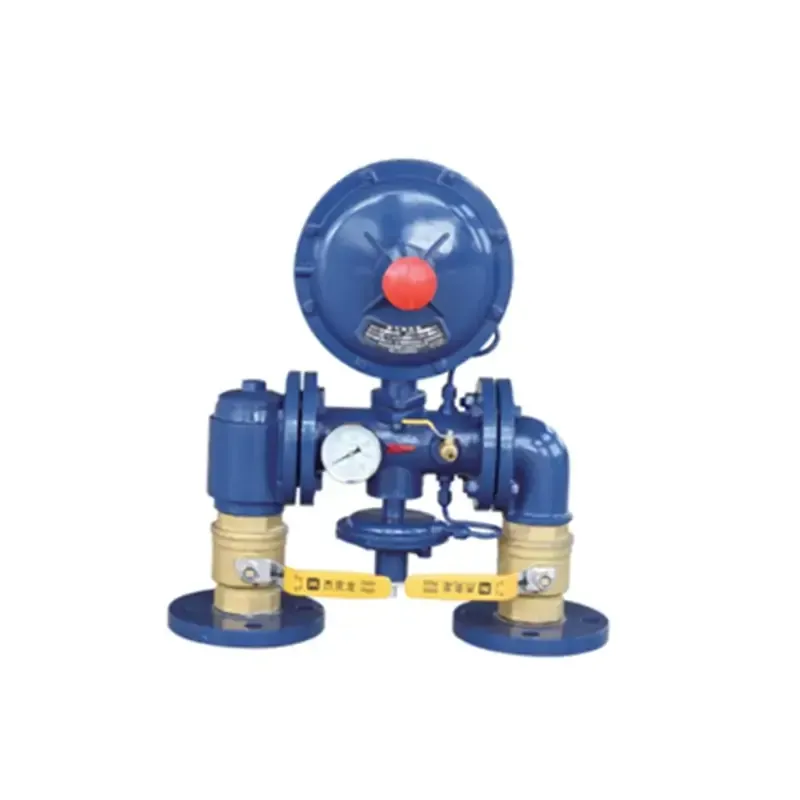
Nov . 08, 2024 12:48
Back to list
Understanding the Function and Importance of Natural Gas Regulators in Energy Systems
Understanding Natural Gas Regulators Their Importance and Functionality
Natural gas is a crucial source of energy used worldwide for heating, cooking, and powering various appliances. However, to ensure safe and effective delivery of this energy source, natural gas regulators play an essential role in managing the pressure of the gas as it travels from production sites to end-users. This article explores what natural gas regulators are, how they function, and their significance in the distribution process.
What is a Natural Gas Regulator?
A natural gas regulator is a mechanical device designed to maintain a constant output pressure of gas despite variations in the input pressure from the supply line. It ensures that natural gas is delivered to consumers at a safe and usable pressure, allowing appliances to function optimally without the risk of damage or accidents.
How Do Natural Gas Regulators Work?
The functioning of natural gas regulators can be simplified into a few critical steps
1. Pressure Reduction As natural gas flows into a regulator, the device measures the inlet pressure. If the pressure exceeds the desired level, the regulator uses a diaphragm mechanism to open a valve, allowing excess gas to escape until the pressure reaches the predetermined set point.
2. Flow Control Regulators must accurately control gas flow to ensure that users receive a consistent supply. They adjust based on the demand, increasing or decreasing the gas flow as needed. This feature is particularly important for commercial and industrial applications where gas consumption can fluctuate significantly.
3. Safety Features Most regulators come equipped with safety mechanisms, such as excess flow valves and relief valves, which prevent overpressure. These features are crucial for protecting both the supply infrastructure and the end-users against potential hazards related to high-pressure gas.
natural gas regulator

The Significance of Natural Gas Regulators
Natural gas regulators serve several vital functions in the energy distribution system
1. Safety Ensuring gas is delivered at safe pressures reduces the risk of gas leaks, explosions, and other dangerous scenarios. Regulators provide an essential layer of protection within gas pipelines, helping to safeguard lives and property.
2. Efficiency Efficient gas delivery systems minimize waste and reduce energy costs. By regulating pressure, these devices optimize the performance of gas appliances, leading to more efficient energy use.
3. Reliability A well-functioning natural gas regulator contributes to a stable supply of gas, which in turn supports consistent operations for businesses and comfort for households. This reliability is crucial in today’s world, where interruptions in energy supply can significantly impact daily life and economic activities.
4. Compliance Regulatory agencies often impose strict guidelines concerning gas pressure and delivery. Proper functioning of gas regulators helps utility companies and distributors comply with these regulations, avoiding penalties and ensuring safe operations.
Conclusion
In summary, natural gas regulators are indispensable components of the natural gas distribution system, providing safety, efficiency, and reliability. Through pressure regulation, these devices facilitate the safe and effective use of natural gas in homes and industries. As demand for natural gas continues to grow, understanding the role of regulators becomes increasingly important for both consumers and professionals in the energy sector. As technology advances, we can expect ongoing improvements in regulator design and functionality, further enhancing the safety and efficiency of natural gas distribution.
Latest news
-
Safety Valve Spring-Loaded Design Overpressure ProtectionNewsJul.25,2025
-
Precision Voltage Regulator AC5 Accuracy Grade PerformanceNewsJul.25,2025
-
Natural Gas Pressure Regulating Skid Industrial Pipeline ApplicationsNewsJul.25,2025
-
Natural Gas Filter Stainless Steel Mesh Element DesignNewsJul.25,2025
-
Gas Pressure Regulator Valve Direct-Acting Spring-Loaded DesignNewsJul.25,2025
-
Decompression Equipment Multi-Stage Heat Exchange System DesignNewsJul.25,2025

